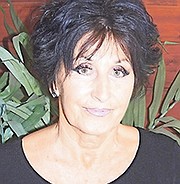By VICTORIA SARNES
We all have them, blind spots. Things we can’t or don’t want to see. In some instances when we “turn a blind eye”, we are doing this consciously, out of love, out of fear, out of laziness or unwillingness to deal with situations, behaviour or character flaws. We hope sincerely that whatever it is will resolve itself even when those issues might impact us negatively. There are small things we might purposely overlook out of kindness to save someone or ourselves from embarrassment or the issues that in the long run are not worth arguing about. These play out almost daily and some of them are necessary for keeping life running smoothly and confrontations over small stuff at bay.
Much more significant are the blind spots which impact our thinking and those of our leaders, governments, agencies and corporations. These blind spots are related to bias, where it is rooted in our psyche and how they subconsciously influence our behaviour in powerful and significant ways of which we are frequently unaware, but which nonetheless narrow our perspective and decision-making processes.
Our blind spots or biases are inculcated in us from a very young age, sometimes on purpose and sometimes absorbed and embedded because of the environment in which we have been raised. It is human nature to automatically feel more comfortable with people who are like us; people who fit who we think we are or where we are at a social level; people in our ‘tribe’, those who are ‘one of us’ and who think like us. This is our hidden belief system. It is potentially and dangerously counter-productive affecting every area of our lives and those of others, particularly those who are different ethnically, religiously or politically.
Diversity of information and experiences is the key to informed and rational thinking and by extension, impacts our decision making process. The best leaders of governments or organisations listen to a wide variety of opinions, they do not surround themselves with ‘yes men/women’. We cannot understand or resolve a potential threat or problem of any kind without examining all sides of the question. This requires us to relinquish our biases, our blind spots and suspend judgement. How do we do this if we are unaware of the subconscious elements influencing our response? We do it in a variety of ways: by putting together groups of individuals, agencies or communities comprised of those with beliefs, education, experience, race or social standing which differ from ours. We do it by being open and receptive - by not succumbing to a rigid stance, assuming ours is the only or the”right’ point of view.
Those who have grown up in circumstances different than ours with other experiences, lifestyle or education will naturally have different expectations and perspectives. We need to accept this as a fact. It doesn’t mean any of us have to be assigned the label of right or wrong. We need diversity in every sense of the word. It is essential in this world we have created of instant inter-connectedness that we find ways to listen because we genuinely want to hear, to collaborate, cross-pollinate or challenge information, across the entire spectrum of human relationships. This applies to our personal and social lives, our interactions at places of work or with strangers. If we surround ourselves only with people who agree with us, corroborate or mimic our stories, we might feel temporarily more at ease but those blind spots in our awareness will lose us advantages in business or political strategy. We need to apply that same logic to the big picture with corporations and governments and their agencies when the whole truly becomes bigger than the sum of its parts. Our security and safety depends on how much real knowledge, analytical capabilities or awareness of their own blind spots, any of those individuals possess.
In an ideal world we are aware of our blind spots and how they skew our perception. The ability to recognise these personally means we can move on to counter-act other biases on a grand scale. Wouldn’t it be amazing to see: fewer violent acts, racial tensions, personal or business difficulties and failures. But first we need to honestly understand ourselves before we can begin to understand others; open our eyes and benefit from the differences.
• Victoria Sarne is an entrepreneur and writer. She headed a team to establish a shelter for abused women and children in Canada and was its first chairwoman. You can reach her at victoria.conversations@gmail.com, visit www.lifelineswritingservice.com, or call 467-1178.





Comments
Use the comment form below to begin a discussion about this content.
Sign in to comment
OpenID